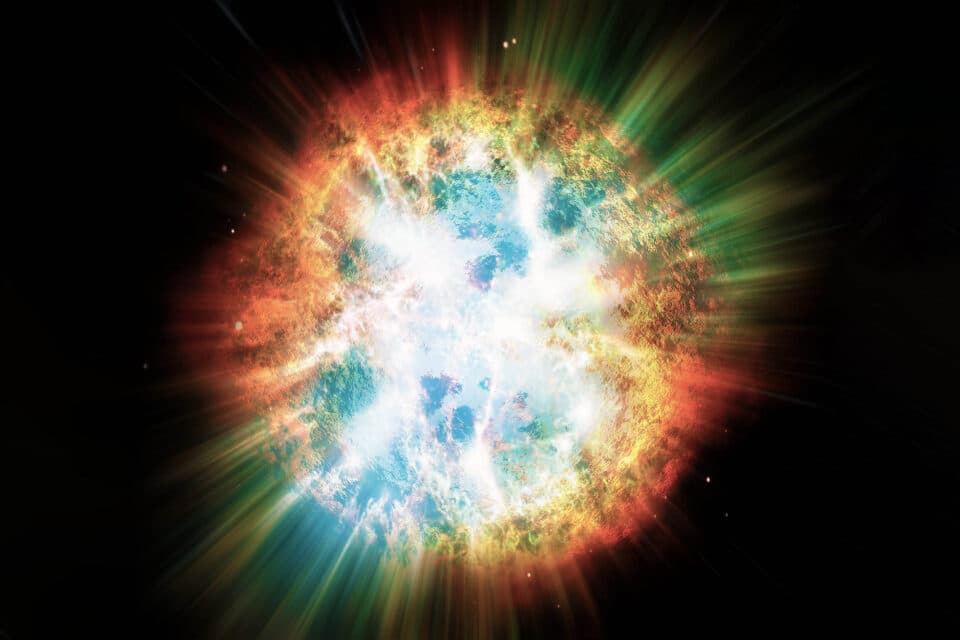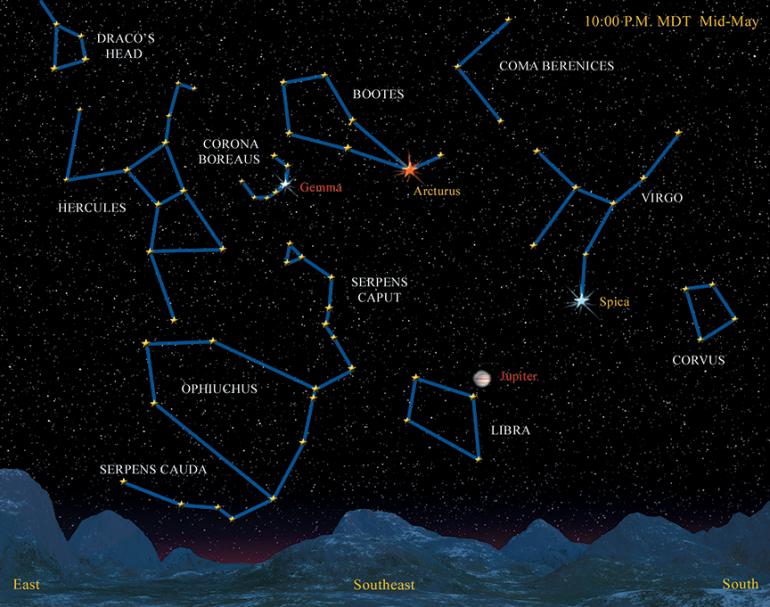New Jewel in the Crown: a Star Will Appear in Corona Borealis
7th Jun 2024
Astronomers expect a star to explode in the constellation Corona Borealis, also known as the Northern Crown this year. This extraordinary event will likely take place anytime between now and September and will be visible to the naked eye.
As bright as North Star Over the UK
T Coronae Borealis (or T CrB) is a binary star system containing a white dwarf (smaller star) and a red giant, orbiting around each other. As the red giant heats up, it begins ejecting its outer layers. The white dwarf collects that matter onto its surface. Most of this matter is hydrogen, and when the hydrogen reaches the surface of a very hot white dwarf, it gets so overloaded that it explodes. This thermonuclear reaction we see from Earth. Such an event is called “nova” (from the Latin for “new star”).

How to find the Corona Borealis constellation between Hercules and Boötes. Credit: outsidebozeman
Why is it more exciting than a solar eclipse?
First of all, it’s an extremely rare event. Total solar eclipses happen about every 18 months, the last one taking place in April of this year. But the upcoming nova of the T Coronae Borealis star system is far less common, occurring once every 80 years.
“Seeing that star blow up is much rarer than a solar eclipse,” – NASA astronomer Bill Cooke told the journalists. – “So it’s kind of a once-in-a-lifetime thing.”
The first explosion was observed in 1866 by Irish astronomer John Birmingham, the most recent – in February 1946.
How to see the new star in the sky?
When T Coronae Borealis will nova, the star system magnitude could change from +10, to +2 – almost the same level of brightness as the North Star seen over the UK. So, it will be visible by simply looking up at the sky for several days. It will be possible to observe the new star using a binocular for over a week before it dims again.
So, while gazing at the night sky, the average stargazer might be fortunate enough to witness a new bright star in Corona Borealis before it fades away.






Thank you for your comment! It will be visible on the site after moderation.